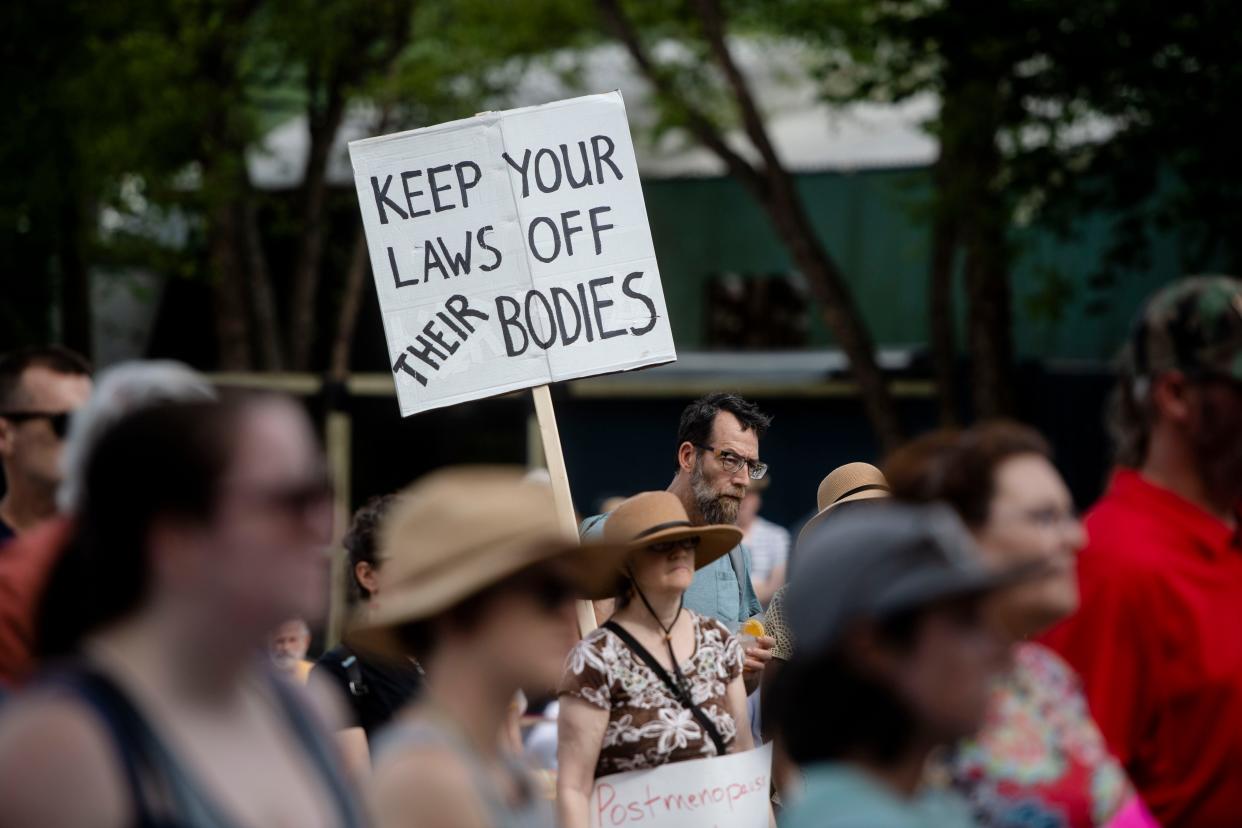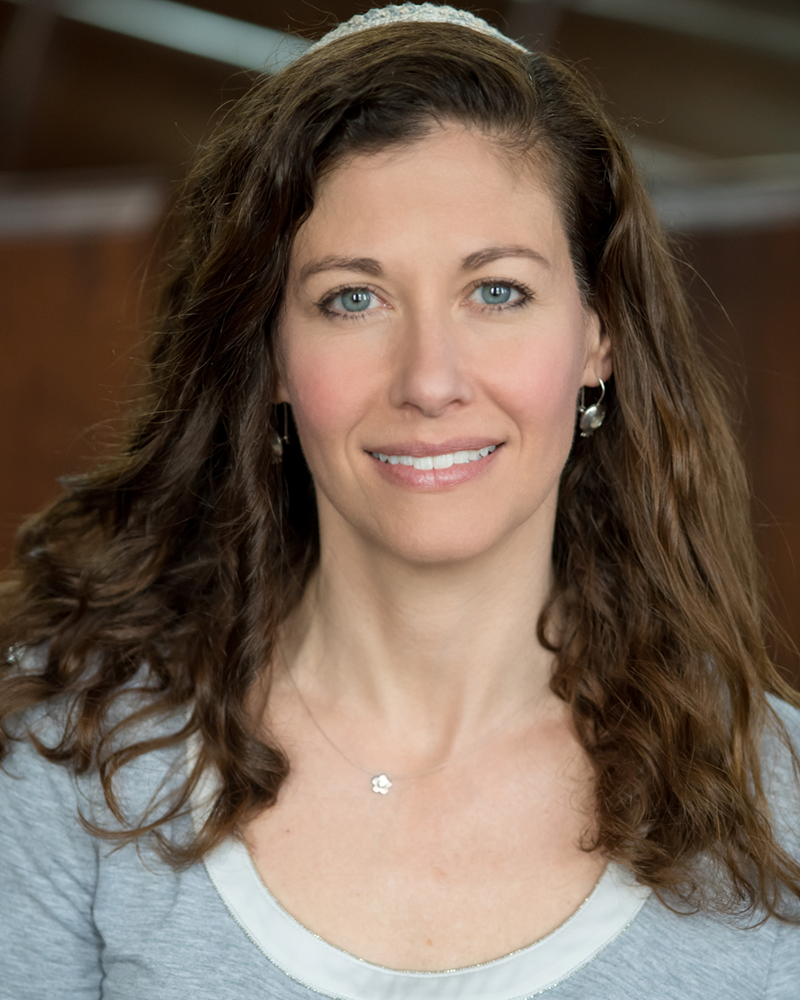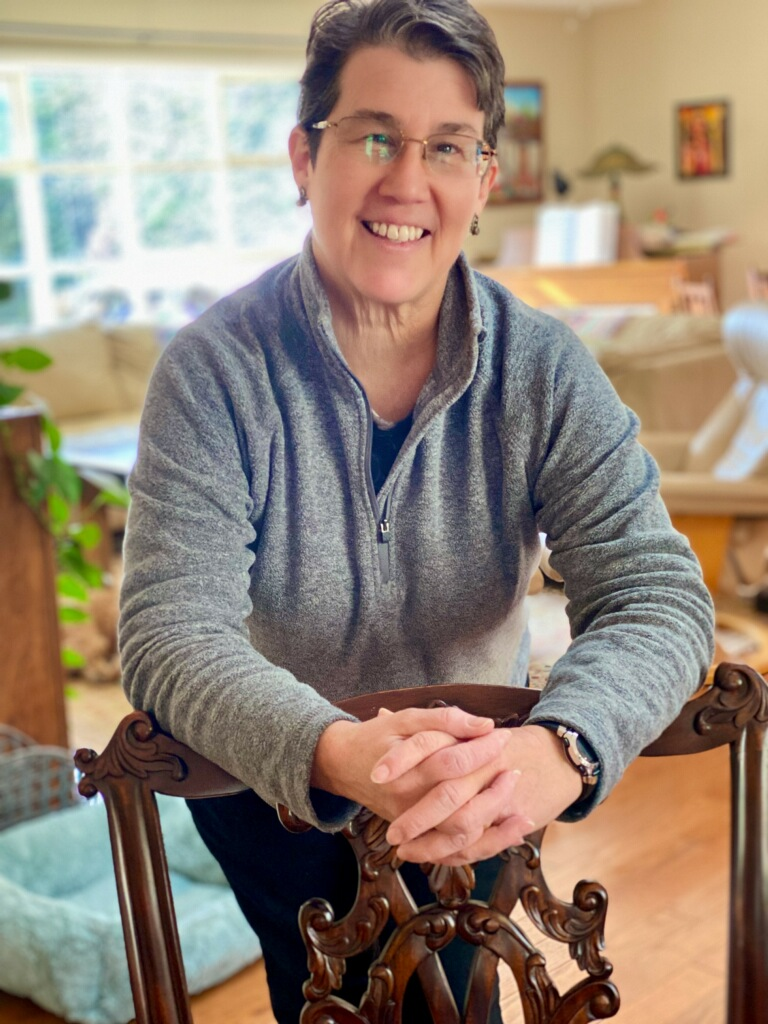Opinion: Asheville Jewish congregations affirm women's rights in NC, denounce abortion ban

Local Jewish clergy affirms support for Gov. Roy Cooper’s veto of SB 20, a bill that imposes a 12-week limit to abortion access. While abortion remains legal in North Carolina, the bill and its multiple restrictions conflict with Jewish values. Since the fall of Roe v. Wade, two synagogues in Asheville, Congregation Beth HaTephila and Congregation Beth Israel, as well as the Jewish Secular Community of Asheville, have passed resolutions on reproductive rights that oppose any ban on abortions.
For thousands of years, Jewish tradition has embraced a sacred obligation to preserve life and protect and prioritize the health and well-being of the pregnant woman; the new abortion ban does not.
More: Editor: Open call for women to share their voices, during Women's History Month and always
Jewish biblical and rabbinic sources compel Jews to cherish the sanctity of life, including the potential of life in the womb but teach that personhood and human rights begin at birth ― not at conception. Jewish law permits – and under certain circumstances mandates ― abortion when the life or health or psychological well-being of a pregnant person is in jeopardy.
The Torah also distinguishes between the value of the life of the pregnant person and the life of the fetus. In Exodus, we are told that if someone causes a pregnant woman to miscarry by pushing her, the person is responsible for paying a fine, while if the push causes the woman herself to die, “the penalty shall be life for life” (Exodus 21:22-24). The differing punishments distinguish between taking the life of the fetus versus that of the mother, giving more value to the life of the mother.
Patients have an obligation to obtain health care. Our bodies and souls belong to God, and we must ensure that they are cared for. The verse in Deuteronomy (4:15) “You shall indeed guard your souls,” has traditionally been interpreted as commanding us to protect our health. Judaism believes that this commandment extends to reproductive health.
Rabbi Mitch Levine, of Congregation Beth Israel, states that according to Biblical law and generally in the Jewish tradition, the fetus is not considered a child possessing a status independent of its mother until birth. Rabbi Levine challenged the misappropriation of the Hebrew Bible to claim otherwise for political purposes. The Bible tells us, “Choose life!” Rabbi Levine believes what matters is saving and protecting actual human lives, not solely potential ones.
According to Rabbi Batsheva Meiri from Congregation Beth HaTephila, “As many have pointed out, legal limitations on reproductive health care are an infringement upon a Jewish person exercising their right to religious freedom.” Just as Jews would not impose Jewish teachings on others nor legislate it as normative for society, Jews cannot accept the imposition of any other religious group’s beliefs on the Jewish community or the American people at large. Asheville’s Jewish congregations believe in kavod ha’brivot – the sacred obligation to provide medical care to those in need, as determined by licensed healthcare providers, their patients, and their patients’ families.
More: North Carolina's 12-week abortion ban to become law; GOP overrides veto
More: Would newly passed NC abortion bill close Asheville clinic? GOP could override veto
Thus, the Board of Trustees at each congregation has passed resolutions that reaffirm support of women’s reproductive rights, including, in certain circumstances, the right of a pregnant person to choose an abortion in accordance with Jewish law. Together, they stand in defense of their First Amendment right freely to practice their religious beliefs and laws without government interference.
Right after the overturning of Roe v. Wade, members of Carolina Jews for Justice came together to share stories, educate and advocate for reproductive justice from a Jewish perspective. Supporting congregations to adopt resolutions is one of the ways CJJ has used its presence in communities across NC to create a more unified Jewish voice in favor of abortion access. CJJ will continue to be a part of the movement to ensure reproductive justice for all.
Consistent with the Jewish value of pursuing tzedek (justice) for all, we vehemently oppose laws, including SB 20, that will create a patchwork of abortion access and keep basic health care out of reach for many.
These intimate, personal, and private health decisions should be left to the pregnant person, often in consultation with that person’s health care provider, family, and clergy — but not with politicians and lawmakers.



Rabbi Batsheva Meiri of Congregation Beth HaTephila, Rabbi Mitch Levine of Congregation Beth Israel, and Lisa Forehand, community organizer for Carolina Jews for Justice West.
This article originally appeared on Asheville Citizen Times: Asheville Jewish leaders oppose NC override on abortion ban veto

